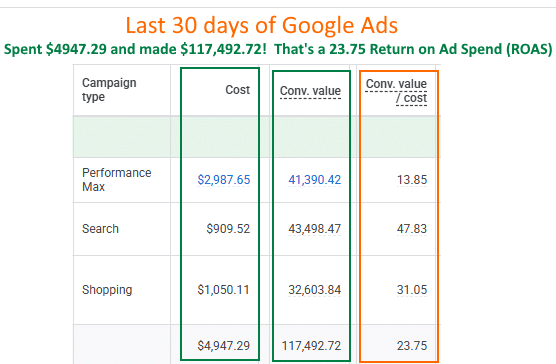If you create content for the internet that you want to rank on Google, I hope that you’re using keyword insight tools to optimize your SEO strategy and achieve better organic results in search engines. Identifying keyword clusters is something you should be tracking. Though funnily enough, what you do with this information has done a 180 flip within the past year or so. While creating content for a specific niche helps Google understand what your content is about, using the same or very similar keywords over and over is called content cannibalization, and it can actually be really detrimental to your search engine rankings. If Google cannot identify which of the articles should rank higher for a specific query, it will rank both pages low and neither will see much traffic. By auditing the content of a real estate website and reducing content cannibalization, they actually saw a 110% increase in organic traffic due to the reduced content cannibalization. If you have any questions about content cannibalization or want us to audit or handle your SEO strategy for you, reach out to us at Prebuilt Sites or The BBS Agency. We’d love to help you out!
If you are a Digital Marketer or create content for the internet, you have certainly heard of Keyword Insights, a tool developed with the aim of helping companies and web content creators to optimize their SEO strategies and achieve better organic results in search engines.
Many professionals use the tool daily to create online content and perform keyword research identifying content that can be made based on keyword clusters.
However, in a recent attempt, Keyword Insights used keyword clusters to identify content to be eliminated — the opposite of what they used to apply this strategy for — and they achieved fantastic results: a 110% increase in organic traffic due to reduced content cannibalization!
First of all, what is content cannibalization?
Content cannibalization happens when you have multiple pages targeting the same or similar keywords, causing these contents to compete with each other for Google ranking and, consequently, harming your site’s organic performance.
Let’s say you have two posts on the same topic, LinkedIn’s algorithm, for example. In this case, Google cannot identify which of the articles should rank higher for a specific query. As a result, both posts will likely rank low, meaning you won’t be able to consistently rank well for either one.
Another problem generated by cannibalization is that, depending on the site and how the pages are being structured, larger sites can unnecessarily inflate their number of pages and reduce the crawling efficiency/crawl budget.
And it is at this point that Keyword was able to capitalize and reduce a website’s URL count by around 15 million, increasing organic traffic by 110%.
A case study of a real estate website in the US
The client that made Keyword achieve these results was a large real estate website in the US. The types of queries they wanted to rank for were like:
- California homes for sale;
- 2 bedroom houses for sale in Florida;
- log cabins for sale in Boulder;
- colonial houses for sale in Orange County.
After trying to diagnose the issues by crawling the site, the Keyword team came to the conclusion that this company created a “property type” for each keyword in their keyword research, which meant they had over 400 types of properties, including:
- houses for sale in…;
- properties for sale in…;
- log cabins for sale in…;
- log homes for sale in…;
In this way, property pages were created for every US state, city and neighborhood, leading to thousands and even millions of extremely similar and potentially ambiguous web pages, such as “properties for sale” and “homes for sale”.
This led to the hypothesis that they were cannibalizing content, in addition to generating a significant amount of unnecessary URLs to be crawled by search engines.
What has been done to increase this company’s organic traffic results?
The first step was to download a list of all types of properties that the client had and attach the phrase “for sale in California” to it, thus assigning a state to the queries as a way of facilitating the listing process.
As a result, the search list looked like this:
- California houses for sale;
- California properties for sale;
- 2 bedroom houses for sale in California;
- colonial houses for sale in California
- and so on.
Soon after, this information was loaded into Keyword Insights and selected from its groupings and classifications. That is, the search results were analyzed and grouped into segments on the same page.
For example, if “California houses for sale” and “California properties for sale” appear in the same cluster, they should only have one page targeting them and not two as the customer used to do.
The ranking and rating URLs were also analyzed and indicated that there were multiple categories of content showing that there was a lot of cannibalization among them. An example of this is the screenshot taken by the Keyword team showing the first 30 property type pages.
Source: Rock Content
In the right column we can see the property types that Keyword Insights suggested to scroll on the property type in the left column.
Thus, the team was able to reduce property type pages from 413 to 85, resulting in a reduction of around 15 million URLs and a 110% increase in organic traffic!
Source: Rock Content
What lessons can we learn from this case?
Keyword cannibalization is pretty bad for your site’s organic performance. But it’s important to remember that you will only have one real issue to worry about when multiple pages target the same keyword, which can happen more for larger company websites.
However, to identify cannibalization problems on your website or blog, you can start with content auditing. This is the first step for any change or optimization on your page.
If you have identified that your traffic is suffering from content cannibalization and you want more tips on how to improve your web page, we have prepared some content with 6 more tips on how to fix cannibalization on your site.
Originally published by Kamila Dantas for Rock Content.




